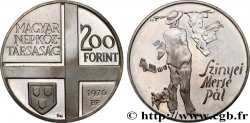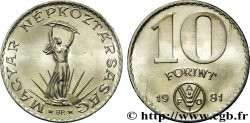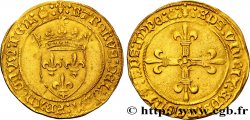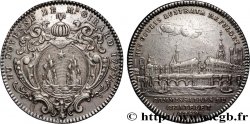Live auction - fwo_531395 - HUNGARY 20 Korona François Joseph 1893 Kremnitz
You must signin and be an approved bidder to bid, LOGIN TO BID. Accounts are subject to approval and the approval process takes place within 48 hours. Do not wait until the day a sale closes to register. Clicking on "BID" constitutes acceptance of the terms of use of cgb.fr private live auctions.
Bids must be placed in whole Euro amounts only. The sale will start closing at the time stated on the item description; any bids received at the site after the closing time will not be executed. Transmission times may vary and bids could be rejected if you wait until the last second. For further information check the Live auction FAQ
All winning bids are subject to a 18% buyer’s fee.
All winning bids are subject to a 18% buyer’s fee.
| Estimate : | 310 € |
| Price : | 300 € |
| Maximum bid : | 300 € |
| End of the sale : | 30 July 2019 18:08:35 |
| bidders : | 5 bidders |
Type : 20 Korona François Joseph
Date: 1893
Mint name / Town : Kremnitz
Quantity minted : 5089000
Metal : gold
Millesimal fineness : 900 ‰
Diameter : 21 mm
Orientation dies : 12 h.
Weight : 6,78 g.
Edge : inscrite en creux BIZALMAM AZ OZI ERENYBEN (Ma confiance a la vertu originelle)
Slab

PCGS : MS62
Coments on the condition:
La monnaie est sous coque PCGS MS62
Catalogue references :
Obverse
Obverse legend : FERENCZ JOZSEF I. K. A. - CS. ES. M. H. S. D. O. AP. KIR./ 1893.
Obverse description : François-Joseph Ier debout en pied à droite, en habit de sacre.
Obverse translation : (François-Joseph par la grâce de Dieu empereur d'Autriche et roi apostolique de Hongrie, Croatie, Slavonie et Dalmatie).
Reverse
Reverse legend : MAGYAR KIRALYSAG/ 20 KORONA.
Reverse description : Écu couronné surmonté de la couronne de saint André soutenu par deux anges.
Reverse translation : (Royaume de Hongrie - 20 couronnes).
Commentary
La réforme monétaire de 1892 modifia l'unité monétaire qui devint la korona, divisée en 100 fillers. Ce type fut fabriqué entre 1892 et 1915. Par rapport à des événements récents, nous constatons qu'en Hongrie du XIXe siècle, le passage définitif d'une devise à une autre se fit en vingt-sept ans. Les Européens d'aujourd'hui sont devenus, semble-t-il, bien plus malléables.







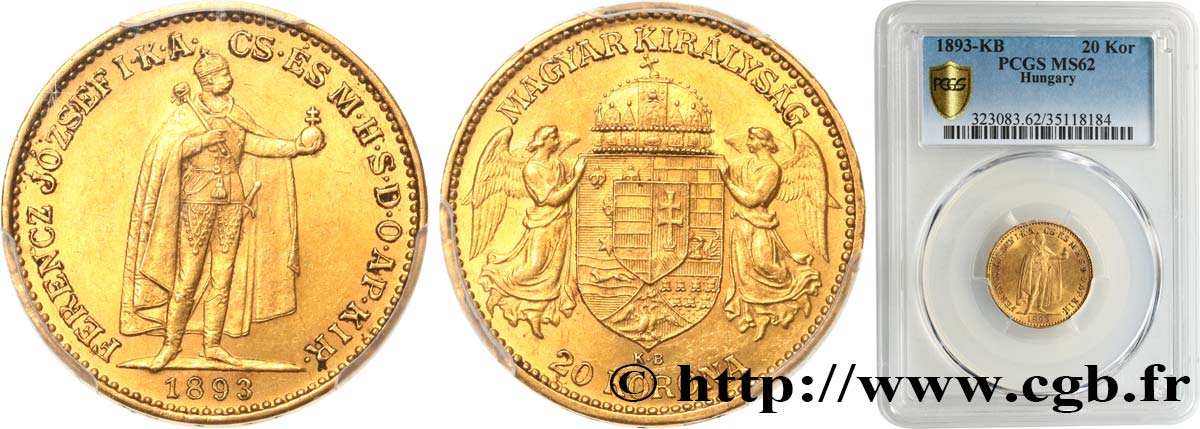
 Report a mistake
Report a mistake Print the page
Print the page Share my selection
Share my selection Ask a question
Ask a question Consign / sell
Consign / sell
 Full data
Full data